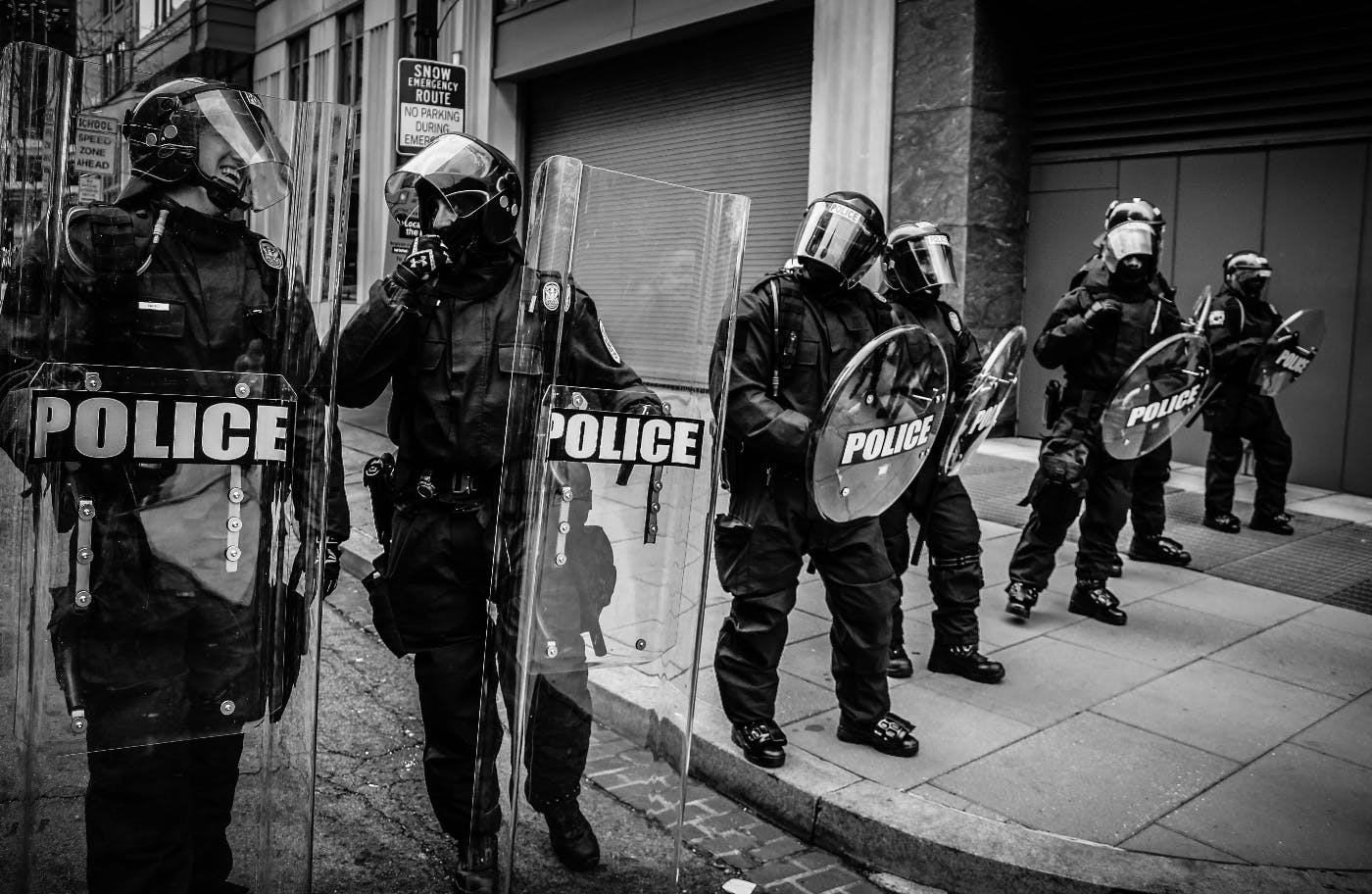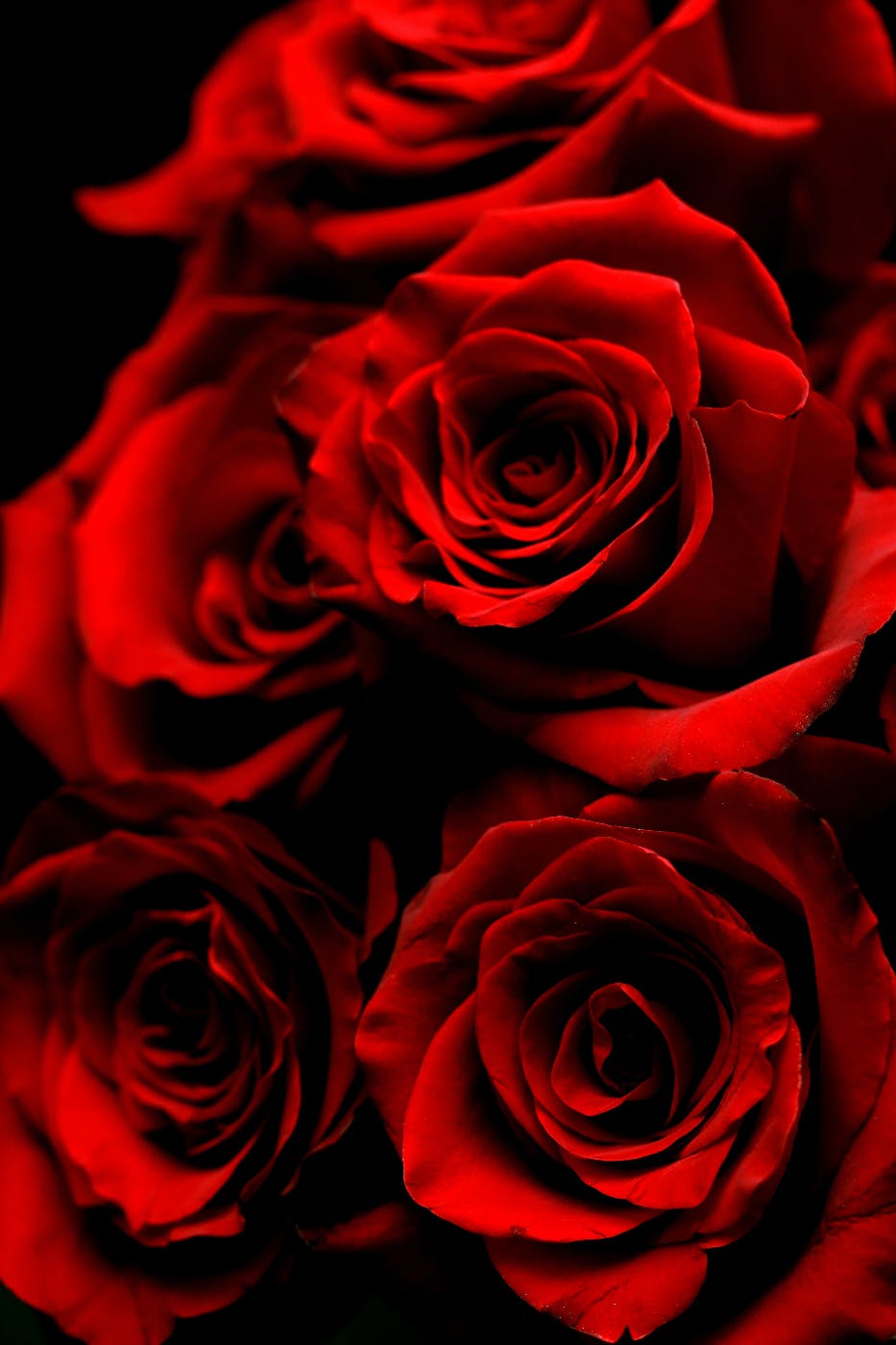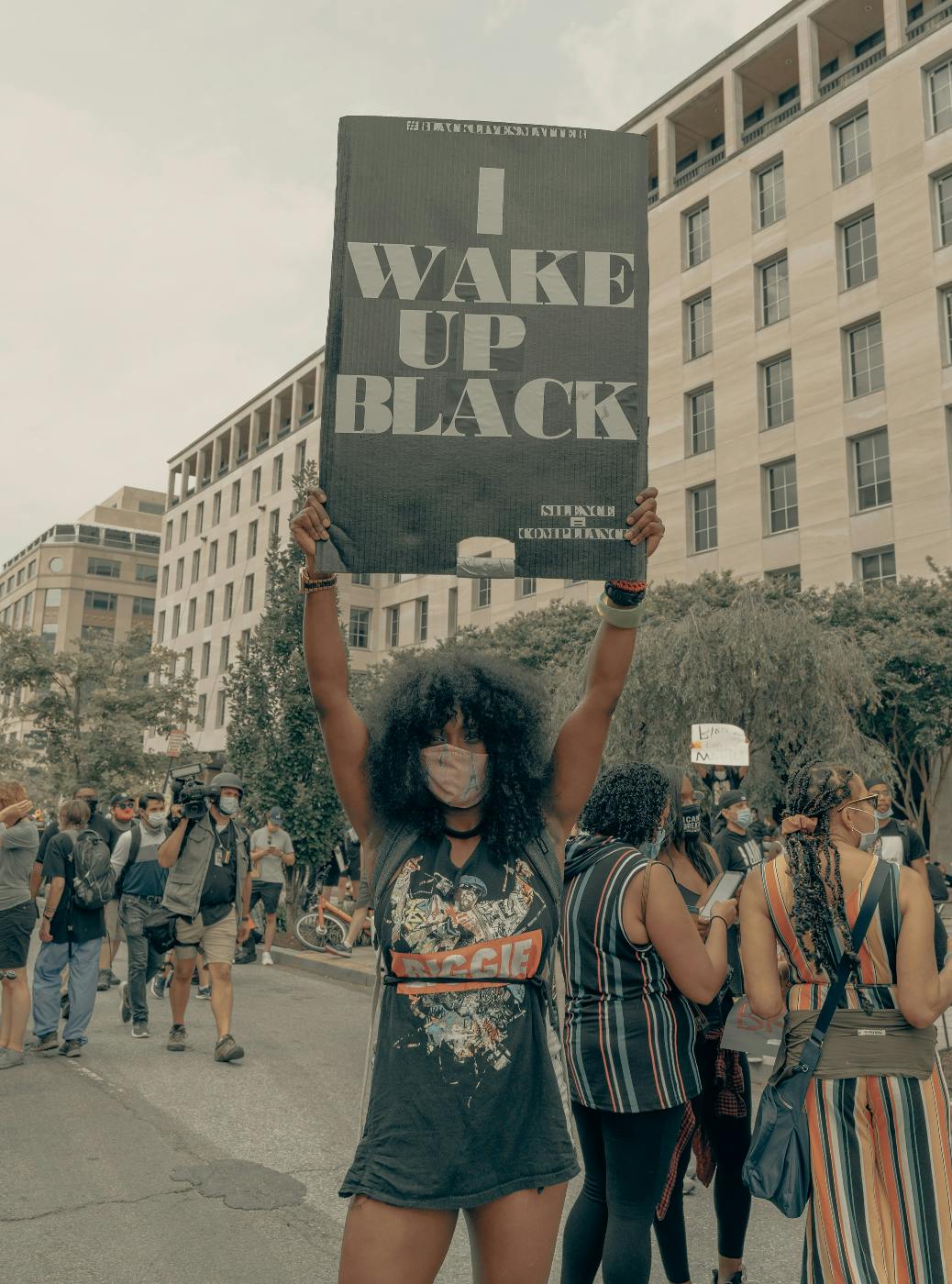
In this article, we’ll briefly examine the word woke, what it means, where it came from, and if it’s cultural appropriation or damaging to us: just an opinion and some fact-finding.
Life changes. As humans, we’re always looking for better, faster, more convenient ways to do the things in our lives that we’ve been doing forever. We see this all the time. We no longer bring our clothes down to the river and pound them on the rocks to get them clean; we have machines for that. We have machines for many things because we are constantly developing and changing, taking this idea and applying it to other needs. Humans change constantly.
One change is our language. Each year, on average, we add between 800 and 1000 words to the dictionary. Many of those words start as slang and then move into the everyday lexicon of our lives. Sometimes the words come from social media, terms like ghosted, blog, tweet, selfie, hashtag, and influencer. These words start on social media, and then we slowly blend them into our everyday speech.
This isn’t new; we’ve been building our language for years. We no longer say things like daddy-o or caution our kids to buckle their knickers above the knee to be proper. Times change, and words come and go. The useful ones, the popular ones, hang on until the technology no longer supports them. Dial tone is one term that doesn’t seem to work any longer. Neither does “drop a dime on someone” when you talk about turning someone over to the cops. We evolve, and our language comes along with us.
Sometimes, the meaning and the use of words get blown apart, and suddenly, we find ourselves using a term endlessly and not really knowing where it came from or the true meaning. Such a word is “Woke.”
In this article, we’ll briefly examine the word woke, what it means, where it came from, and if it’s cultural appropriation or damaging to us: just an opinion and some fact-finding.
What is cultural appropriation
We’ll start here because understanding what cultural appropriation means is at the root of some of the problems with the word woke being bandied about so much and, at times when it really doesn’t apply.
Cultural appropriation means: when someone from a dominant culture adopts or uses something from a minority culture. Some cited examples of cultural appropriation are a white person with dreadlocks and white people wearing the traditional dress of Japan, the kimono.
There is meaning behind dreadlocks; it is not just a random hairstyle. According to Rastas, dreadlocks represent a connection to Africa and a rejection of the West, which they term Babylon. Dreadlocks represent a renewed sense of pride in African physical characteristics and Blackness, which ties in with their belief about keeping things natural.
In pre-Columbian America, Oceania, and Africa, dreadlocks were used as a social and cultural symbol often associated with shamanism. This hairstyle represented a connection with the divine and spirit realm and was often a symbol of strength and integrity for warriors and chiefs.
Knowing that definition, it does make sense that African Americans would feel that piece of their culture was appropriated without understanding or respect by white people sporting dreads.
But how far does this go? If white people eat Mexican food, are they committing an act of cultural appropriation? If white chefs open a Japanese restaurant, is that cultural appropriation?
This is where things get dicey. Food is universal, and we have traded, adapted, and created new dishes based on old dishes for centuries. So, does that have to stop now? Are cultural warriors saying only Italians can open Italian restaurants and only Mexicans can open Mexican restaurants? The easy answer is no, but there is some depth to that.
Food Appropriation or Appreciation

Here’s the difference, and this matters. Say a white person goes into an Indian restaurant, tries a dish they never had before, and loves it. If they go home and make that dish, share it, and tell people they made it or claim they did it better than the original, they have appropriated the food.
If they taste the dish, love it, go home and learn about the culture it came from and its meaning, then make it, serve it to friends, and tell them the origin and why the dish is significant. They do not claim ownership; they appreciate the food and the culture and show respect, which is appreciation.
In the food world, they speak of colonizers, the people who take a recipe from another culture, like Chinese food, and change it, claiming it’s better than the original. Making the dish more palatable to their audience that’s appropriation.
Mind you, there is no written law against it, and if you serve tacos on your next game night, you’re not appropriating the culture. Unless you say this combination of meats, spices, and vegetables in this corn tortilla is my invention. Well, then, you are appropriating.
The thing to do is understand the culture, the meaning behind the dish, why it was served, who ate it, and when. Knowing the origins and respecting them go a long way in this new world of appropriation.
If a white chef is creating food from another culture and they call it fusion or say it’s inspired by, and give the culture and place respect, that’s okay. They aren’t trying to one-up a culture or eclipse the culture by saying things like this is the right way to cook this ethnic food, then that’s not cool.
Trader Joe’s was accused of this back in 2022 when they declined to change rather racist labels on their foods. They were packaging Asian foods under the name “Trader Ming’s” and Mexican foods with the label “Trader José.” Not only were these labels racist, Trader Joe’s denied the labels were racist, but they recanted a few weeks later and changed the labels. But, clearly, slapping an Asian-sounding or Mexican-sounding name on a label is cultural appropriation.
Now, Woke
Now woke. This word has seen its day in Congress and the streets. You cannot look at any form of social media without seeing someone called woke or someone claiming the woke mob canceled them. But what does it mean, and where does it come from?
Back in the old days, before Facebook, Twitter, and the like, woke was simply the past tense of wake, as in to wake or wake up. Ah, the simple times.
Now things have changed considerably, and in 2017 the new, modern definition of woke was placed in the dictionary. So, according to the good folks at Merriam-Webster, woke is chiefly American slang, meaning:
“Aware of and actively attentive to important facts and issues (especially issues of racial and social justice).”
The dictionary goes on to say, “Stay woke became a watchword in parts of the Black community for those who were self-aware, questioning the dominant paradigm and striving for something better.” The dominant paradigm is racism. Despite the efforts of the Civil Rights Movement, racism was still a problem in this country, And it still is.
During the Civil Rights Movement, the Black community was distrustful of the white population, as well as they should be, and their watch cry was to stay woke to what was really going on around them. It was a warning that the apparent care the Black community was experiencing shouldn’t be trusted blindly. Stay woke, stay aware, see what’s happening around here, is what they meant by woke.
The first case of the word woke used in a political awareness manner was in a 1962 New York Times Magazine article by William Melivine Kelley, titled, If You’re Woke, You Dig it. The article described the appropriation of African-American Vernacular English (AAVE) by white beatniks.
In the article, Kelley points out that the Negro community would use words, change their meanings and jettison those words as soon as they heard them used by white people. Some staples, like cool and dig, remained as foundations in their vernacular, but others moved on quickly.
In 1971, the play Garvey Lives! by Barry Beckham read: “I been sleeping all my life. And now that Mr. Garvey done woke me up, I’m gon’ stay woke. And I’m gon help him wake up other black folk.”
In 2012 when the Russian feminist group Pussy Riot was imprisoned for a protest intended to shine a light on the oppression of women, Erykah Badu, composer of the 2008 song Master Teacher, Tweeted: “Truth requires no belief. Stay woke. Watch closely. #FreePussyRiot.”
The word “woke” hit its mainstream stride when the Black Lives Matter Movement used the hashtag #staywoke following the murder of Michael Brown in Ferguson, Missouri, by police in 2014.
“The word woke became entwined with the Black Lives Matter movement; instead of just being a word that signaled awareness of injustice or racial tension, it became a word of action. Activists were woke and called on others to stay woke,”Quote:
Merriam-Webster

Unlike other terms in the civil rights movement, “woke” is not an acronym.
Now the “Woke Police”
The term “woke police" is used chiefly by those opposed to the woke movement to negatively impact those who identify as woke and fight social and racial injustice.
Further, the term is used to claim that woke people are policing others' actions and words in response to backlash someone else has received for their words or actions. For example, suppose some celebrity is accused of using racist ideas or language and is held accountable. In that case, supporters of the star will say the “woke police” were offended, so the celebrity had to apologize. But, the term woke police is being used as a negative here to undermine the backlash said celebrity is experiencing and minimize the movement in general.
Being woke is a good thing; it means you’re not just buying what’s being sold to you; you’re looking into it, seeing what’s wrong, and doing something about it. People use woke as a negative when they fear their transgressions will be called out and their regularly racist, sexist, anti-human comments or actions will no longer stand. Those who use woke as a negative are acting out of fear.
Woke and the media
Primarily conservative media uses the term woke negatively. Those who claim the Oscars during the pandemic were ruined because woke mentality forced the academy to take a closer look at why so few black performers and artists were nominated or won. These negative speakers claimed the glitz of the ceremony was gone due to the woke mob. Truth is, there was a pandemic, and not much attention was paid to these types of ceremonies.
What the media did, however, was to dilute the word woke and its roots and meaning. So that when real woke-ism is called for, like Black Lives Matter, some in the white media have purposely misused, overused, and destroyed the truth behind being woke so that it has no meaning whatsoever.
Woke Appropriation
If we recall the start of this article and the brief discussion about appropriation, one can easily see that the term woke, has been appropriated on both sides.
The naming and shaming of people for a minor thing and the culture of the “Karen” are being called woke. A complaining, racist customer at Walmart is not woke. Neither are M&Ms, children’s books, or wanting your kid to get a good education. Pulling books from school libraries that talk about gender or the struggle of black and brown people in the history of the United States is the polar opposite of woke. People wanting the History of Black Americans taught or acknowledged in history classes or history books are not woke; it’s a simple fact the Black community struggled to have a place in this country, and in doing so, they gave us so much. Asking for the truth of that to be taught is not woke.
Woke has been culturally appropriated and turned against its true meaning, slowly making it devoid of value or story. That’s the worst form of cultural appropriation.
Woke has a meaning and history, it has a culture under it, and it makes sense when you know all of that. When you understand where woke comes from and why it has come to the forefront of protests these days, you’ll understand the proper use and see those who are twisting it into a negative, using it for every situation they fear or don’t understand, are misappropriating the word.
Being woke is suitable for all of us. We all need to know when the word is used correctly, when the weight of its history is being employed, and when it’s being used to hide fear, misunderstanding, and racism.
So, when you do the work, you’ll understand that being woke has nothing to do with M&Ms and their “sexuality,” but it has everything to do with the history and culture of Black Americans being ignored and removed from our books and schools.
Be aware and stay awake, so those with bad intentions don’t just sneak things by you, thinking you’re not paying attention or stupid. Understand the words you’re using and have respect for their history and culture.
we should all be woke.
Work with us.
Tell us where you want to be. We'll help you get there.

